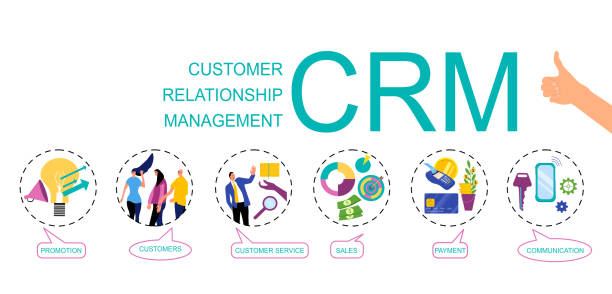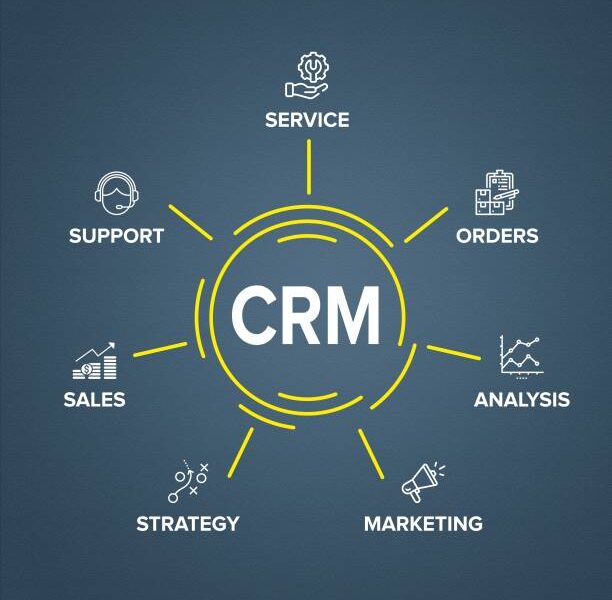The Ultimate Guide to CRM Tools for Growing Sales in New York’s Competitive Market
In the bustling business landscape of New York, companies are constantly seeking ways to enhance their sales processes and customer relationships. Customer Relationship Management (CRM) tools have emerged as essential assets for businesses aiming to thrive in this competitive environment. This guide explores the various CRM tools available, their benefits, and how they can be leveraged to grow sales effectively.
Understanding CRM Tools
What is a CRM?A Customer Relationship Management (CRM) system is a technology used by businesses to manage interactions with current and potential customers. It helps organizations streamline processes, improve customer service, and increase profitability by organizing customer data and interactions in one central location.Key Features of CRM Tools
- Data Management: CRMs store vast amounts of customer data, including contact information, purchase history, and communication logs.
- Sales Tracking: They provide tools to track sales activities, manage leads, and forecast future sales.
- Marketing Automation: Many CRMs integrate marketing tools that automate email campaigns and social media interactions.
- Reporting and Analytics: CRMs offer reporting features that analyze customer behavior and sales performance, helping businesses make informed decisions.
The Importance of CRM in New York’s Market
New York’s market is characterized by its diversity and competitiveness. Businesses must adapt quickly to changing consumer preferences and market trends. Implementing a robust CRM system can provide several advantages:
- Enhanced Customer Insights: By analyzing customer data, businesses can gain insights into buying behaviors and preferences.
- Improved Communication: CRMs facilitate better communication within teams and with customers, ensuring that everyone is on the same page.
- Increased Efficiency: Automating routine tasks allows sales teams to focus on building relationships rather than administrative work.
Popular CRM Tools for Sales Growth
Several CRM tools stand out in the market for their unique features and capabilities. Here are some of the most effective options for businesses in New York:
1. Salesforce
Salesforce is one of the leading CRM platforms globally, known for its comprehensive features that cater to various business needs:
- Customization: Salesforce allows extensive customization to fit specific business processes.
- Integration: It integrates seamlessly with numerous third-party applications.
- Analytics: Advanced analytics tools help track sales performance and customer engagement.
2. HubSpot
HubSpot offers a user-friendly interface that is ideal for small to medium-sized businesses:
- Free Tier: HubSpot provides a free version with essential features, making it accessible for startups.
- Marketing Tools: It includes powerful marketing automation capabilities that help generate leads.
- User Support: HubSpot is known for its excellent customer support resources.
3. Zoho CRM
Zoho CRM is a cost-effective solution that offers robust features for growing businesses:
- AI-Powered Insights: Zoho uses AI to provide predictive analytics and insights into customer behavior.
- Customization Options: Users can tailor the platform to meet their specific needs.
- Mobile Accessibility: The mobile app allows users to manage their sales activities on the go.
4. Microsoft Dynamics 365
Microsoft Dynamics 365 combines CRM with enterprise resource planning (ERP) capabilities:
- Integration with Microsoft Products: Seamlessly integrates with other Microsoft applications like Outlook and Teams.
- Comprehensive Features: Offers advanced analytics, marketing automation, and sales management tools.
- Scalability: Suitable for both small businesses and large enterprises.
Implementing a CRM System
Adopting a CRM system involves several critical steps:
1. Define Your Goals
Before selecting a CRM tool, it’s essential to identify specific goals you want to achieve, such as increasing lead conversion rates or improving customer retention.
2. Choose the Right Tool
Evaluate different CRM options based on your business size, budget, and specific needs. Consider factors such as ease of use, integration capabilities, and customer support.
3. Data Migration
Transitioning from existing systems to a new CRM requires careful planning. Ensure that all relevant data is migrated accurately without losing important information.
4. Training Your Team
Invest time in training your team on how to use the new system effectively. This will ensure they are comfortable with the tool and can leverage its features fully.
5. Monitor Performance
After implementation, continuously monitor the performance of your CRM system against your defined goals. Use analytics tools to track progress and make necessary adjustments.
Best Practices for Maximizing CRM Effectiveness
To get the most out of your CRM system, consider these best practices:
- Regularly Update Data: Keep customer information current to ensure accurate insights.
- Segment Your Customers: Use segmentation strategies to tailor marketing efforts based on customer preferences.
- Leverage Automation: Automate repetitive tasks such as follow-up emails or lead scoring to save time.
- Encourage Team Collaboration: Foster a culture of collaboration where team members share insights gained from the CRM.
Conclusion
In New York’s competitive market, leveraging effective CRM tools is crucial for driving sales growth and enhancing customer relationships. By understanding the features of various CRMs and implementing best practices, businesses can optimize their sales processes and achieve lasting success.As you explore different options available in the market, remember that the right CRM tool can transform how you engage with customers and ultimately drive your business forward.
FUENTE: youtube


